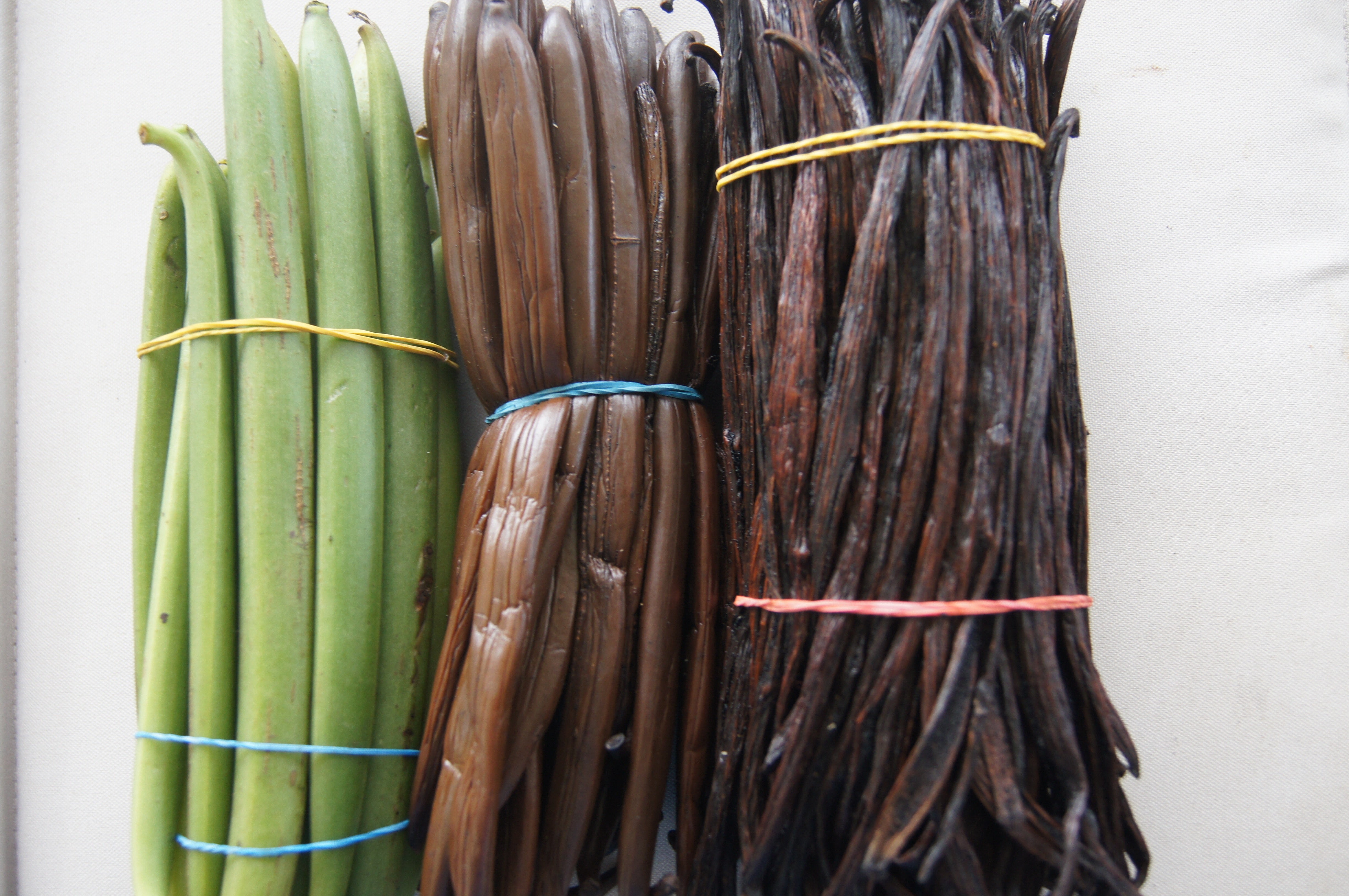It may surprise you to know that last year we were on the brink of discontinuing our Vanilla Cherry Pecan muesli. It has always been a fan favorite, but it has come with a high price. Increased cyclone activity in Madagascar, where 80% of the world's vanilla comes from, have sent vanilla bean prices souring. The limited supply has also turned this unassuming agricultural commodity into a precious gem and there are even stories of guns, theft, etc. Many in the industry began to switch to a "natural vanilla flavor," but because no suppliers could tell us what exactly was in it, we took a firm stance and refused to use it.
Source: Heilala Vanilla

Luckily, around the same time, we met a New Zealand-based company Heilala Vanilla. As learned on our honeymoon, Kiwis do things the right way, so we suspected their vanilla would be no exception. We were right -- their double fold vanilla extract is a game changer in our muesli. We blend it with our organic wildflower honey and drizzle it through the blend so that every bite has a touch of vanilla sweetness.
As we got to know them more, we also learned how they were also doing things differently. Turning a devastating cyclone into an opportunity, founder John Ross (pictured below on the left) worked with a community in Tonga to get the village get back on their feet. Today they partner and collaborate with farmers throughout the group of South Pacific islands to empower women and the community and to grow and harvest the best vanilla in the world.
Source: Heilala Vanilla
If that were the end of the story, it would be enough. But there is more. SO much more to learn about vanilla, cyclones, and sustainable sourcing. If you are interested, read on. If you are already sold, go pick it up a bag at Costco, Target or any stores that carry our Vanilla Cherry Pecan muesli. We think you will taste the difference.

Vanilla 101
Vanilla flowers and beans blossom from a vine held up by a support tree called a tutor, meant to replicate its natural forest environment. Under the right conditions and climate, like in Tonga, the vanilla thrives organically, with little to no chemicals, pesticides or fertilizers needed. It is a sustainable and long-term crop, and once the plantations and processing infrastructure are in place, it has long lasting economic benefits to the community.
Source: Heilala Vanilla

Vanilla is pollinated, pruned and harvested using small delicate tools and hands, lending its workforce mostly to women. After harvest, the vanilla beans are sun dried sorted and graded. The beans start out green and turn a rich brownish red town as they dry. This is also when it gets its flavor. Grade A beans are distributed as whole beans while Grade B goes toward value added product like paste and our double fold vanilla extract at their plant in New Zealand.
Source: Heilala Vanilla

Unfortunately, due to our rapidly changing climate, cyclones continue to increase in frequency and intensity around the world. As recently as February, Tonga was hit by 'Cyclone Gita' and 40 of Heilala's vanilla farmers were affected. Luckily everyone is safe and John Ross is currently in Tonga assessing damages to buildings and the 2018 vanilla crop. Heilala is also working on relief efforts to assist the families and grower communities they work with.
In the face of increasd risks in our supply chain, we have found it to be so critical to work with partners who are transparent, collaborative and aligned with our mission. Heilala's strong values and principles around family and working with communities have allowed us to endure the market volatility and continue to make (and improve) our beloved Vanilla Cherry Pecan muesli.



